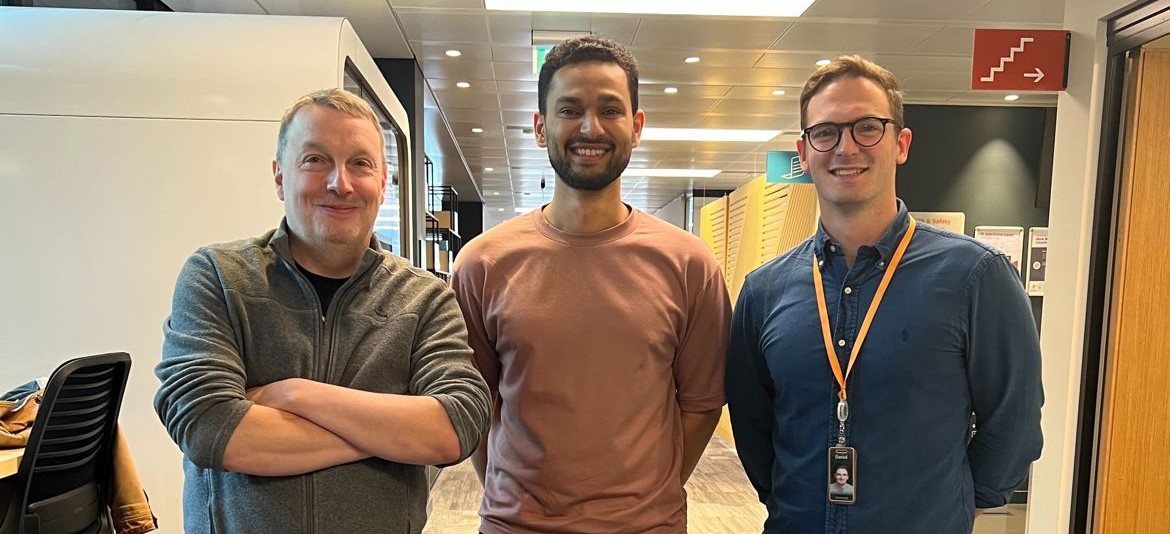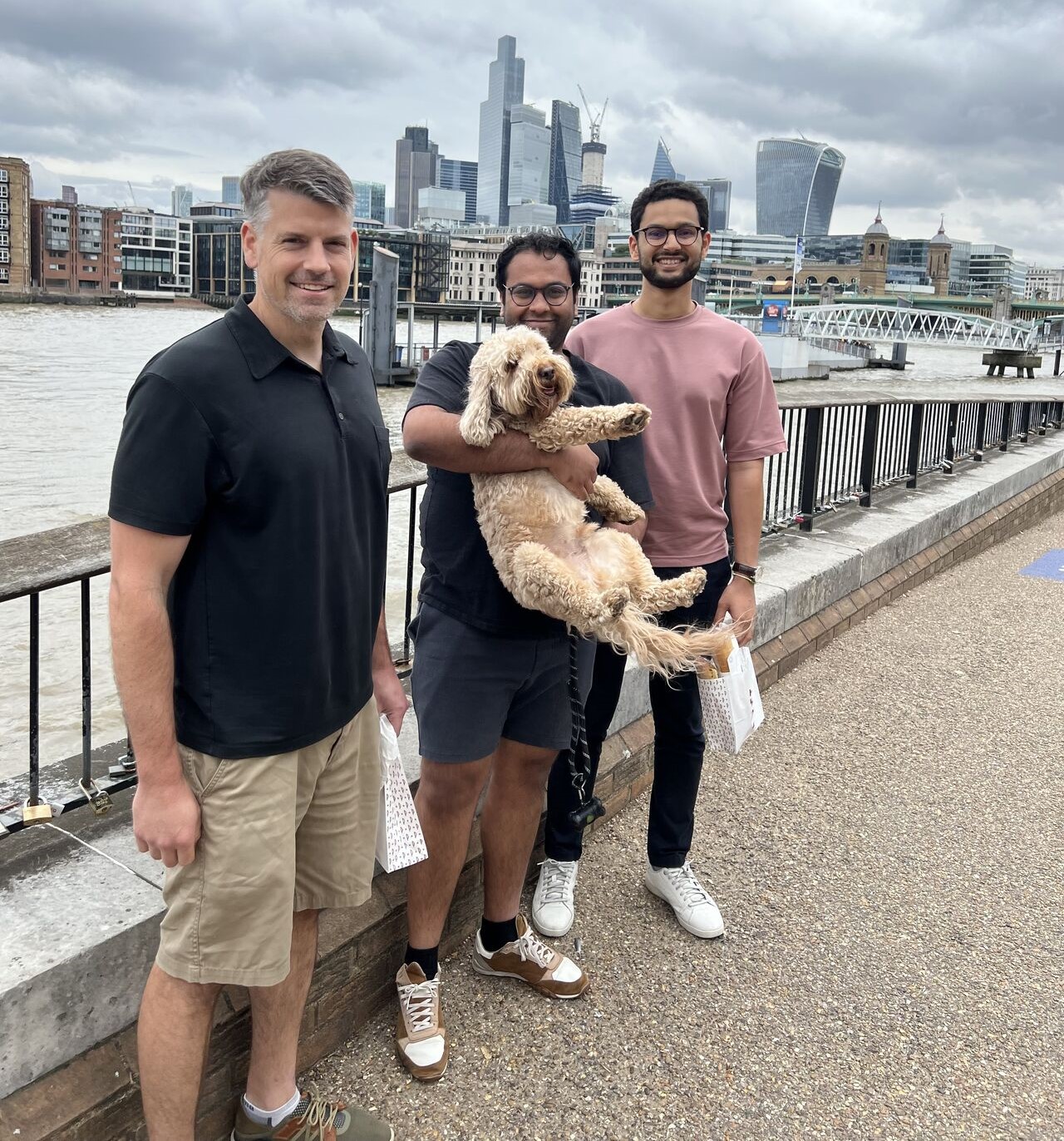Introducing MetaVoice and Siddharth
Q: Can you share a little background about yourself and your company?
A: I co-founded MetaVoice about a year and a half ago with my long-time friend, Vatsal. We shared a vision of personalized content tailored to individual preferences. We spent weekends working on side projects until the circumstances aligned to start the company. Our journey involved building MVPs, testing with users, and learning from their feedback. This led us to our current focus on an open-source foundational model capable of listening, understanding, and speaking in any language or voice, similar to what ChatGPT does for text-based workflows.
Q: What’s the aim behind MetaVoice’s current direction?
A: Our goal is to transform speech-based workflows. We want to offer solutions for transcription, speaker differentiation, emotional speech synthesis, language translation, and noise reduction. Imagine transcribing conversations and having our solution synthesize speech that is not only semantically accurate but also tailored to the specific context, be it for marketing, education, and more. You can also use our technology to dub voices from one language to another and achieve studio-quality audio even in noisy environments.
Q: Could you provide some background about your professional experience?
A: Before MetaVoice, I was an early employee at a self-driving car startup called Wave AI in London. Initially, I joined as employee number 13, focusing on data and machine learning support for their brilliant scientists and roboticists. I played a role in helping them secure a CVC fund of 20 million. As the company expanded, my responsibilities evolved to scaling a two-person team into a high-capacity data-handling organization crucial for self-driving technology. In the last year of my tenure there, I contributed to computer vision research deployed on the streets of London and assisted in raising another 200 million in funding.
Q: How about your co-founder’s background?
A: My co-founder has immersed himself in the world of speech for nearly six years, researching various speech techniques using machine learning. He kick-started the machine learning department at Amazon Alexa in Cambridge. He became one of the core contributors responsible for creating the generative voice you hear from Amazon Alexa today. The foundation of the text-to-speech traffic they serve is built upon his initial work. Currently, he’s driving the technical direction of our company.
Why Entrepreneurs First?
Q: Why did you decide to apply to Entrepreneurs First?
A: Vatsal, my co-founder at MetaVoice, and I had a long-standing desire to build a company together. However, we had different initial ideas; I was inclined toward robotics while he was focused on education. We struggled to find a co-founder who shared our passion and dreams. Entrepreneurs First seemed like the perfect platform to connect with an equally passionate co-founder who could align with our vision.
Moreover, Entrepreneurs First emphasized two values I strongly believed in. They advocated “bias through action,” encouraging us to test our ideas immediately. Additionally, they promoted the “lean startup mindset,” which involved building a minimum viable product (MVP), swiftly releasing it, gathering user feedback, and assessing its value. These cultural similarities made it an ideal place to validate the concepts we had in mind.
Entrepreneurs First’s Application Process
Q: Can you describe the application process you went through?
A: The application process at Entrepreneurs First was an intriguing journey of self-discovery. They were particularly interested in identifying outliers, individuals with unique traits or past experiences that set them apart. This involved deep self-reflection on our contributions, learnings, and career experiences. We had to support these insights with responses to cultural questions, such as what distinguished us from our peers, why we were among the top 1% in our experience bracket, and our most technically challenging or commercially exciting achievements. The process aimed to demonstrate our ability to identify problems, take proactive steps to solve them, and dream big, ultimately making us investable candidates.
Q: Do you believe it was a competitive process, and what do you believe set you apart compared to other candidates?
A: I can’t say for sure whether it was a highly competitive process, but I do know that the success rates for Entrepreneurs First are relatively low. What set me apart, I believe, was my prior startup experience. I showcased shared entrepreneurship early on at Wave AI, where I played a pivotal role in taking the company from its initial stages to a Series B stage. They were impressed with how I identified and proactively solved internal company issues, as well as the significant impact I had on the organization.
Furthermore, they appreciated my product discipline mindset. Instead of just focusing on technology, I concentrated on identifying specific problems and creatively using the available resources to solve them. This approach resonated with their vision.
Inside Entrepreneurs First’s Accelerator
Q: What does the next day look like in the program, and can you describe the program’s structure?
A: The Entrepreneurs First program is a fast-paced three-month experience. In the initial week, you meet your cohort and engage in a kind of “speed dating” to find compatible co-founders. It’s about pitching yourself and convincing others of your value. Throughout the program, the focus is on taking quick action, building, and testing solutions, and providing evidence that your idea solves a real problem. This iterative process encourages teams to form rapidly.
Q: How do you test your ideas and identify your unique edge?
A: Entrepreneurs First’s approach involves recognizing your edge – what makes you uniquely capable of solving a specific problem, whether technically or commercially. For example, I had experience in data and machine learning infrastructure, which was my edge. In the initial week, I partnered with someone who felt like a good fit, and we created a basic solution mock. We then validated it by engaging with 30 industry professionals to determine if the problem was urgent. If the mock didn’t resonate, it prompted us to reconsider our team’s skill sets or the problem’s urgency. In such cases, you might choose to pivot or disband the team.
Q: Does the program also assist you in connecting with potential customers or interested parties?
A: The program won’t directly connect you with potential customers unless your assigned advisor or mentor takes an active role in doing so. Entrepreneurs First expects participants to independently tackle technical and commercial challenges, including finding the right customers.
However, they provide a valuable resource in the form of seasoned entrepreneurs and advisors who can offer guidance and help you navigate your journey. These experts serve as a sounding board to ensure you’re on the right track and stress test your co-founding team’s strength. They challenge your ideas by pushing you to demonstrate urgency and prove, within a matter of days or hours, whether your solution genuinely addresses a problem. This framework enables you to move quickly and iterate effectively.
Q: How much funding did you receive from the program?
A: We received the initial 80,000 offered to companies once they passed the three-month mark. This involved pitching our idea to an investment committee, and if they believed in the strength of our team and our ability to address the market we proposed, they backed us with 80,000 in exchange for equity. Additionally, when we pursued a seed round a few months later, they also provided us with additional funding.
Entrepreneurs First Accelerator’s Impact on MetaVoice
Q: Can you describe a significant milestone you achieved during the program?
A: We hypothesized that people in the market were searching for unique voice identities to engage with specific characters in various virtual spaces for social connections. Over a single weekend, my co-founder, Watsal, and I built an MVP. We created a landing page and a Discord community, and within just two days, we grew our user base from zero to approximately a thousand. During this time, users actively engaged with our MVP and provided feedback. This remarkable achievement occurred within a span of three to four days.
Our ability to swiftly develop and distribute our product to a large audience in diverse spaces impressed us. We took a very hacky approach, but it allowed us to test our hypothesis effectively. This milestone served as the foundation for MetaVoice.
MetaVoice Current Status
Q: What’s the status of the company today post-accelerator?
A: Post-accelerator, we’ve made significant progress. We’ve shipped two MVPs based on our initial insights, and we’ve learned from them to make necessary integrations. Currently, we’re working on our third MVP, which we believe is the right solution for our target audience.
We successfully raised a seed round, with investors supporting both our team and our vision. One of our products, Studio, has become a distribution platform, with hundreds of thousands of active monthly users who actively engage with us and provide valuable feedback. With a strong team and valuable product insights, we’re in a great position to continue delivering value to our users.
Q: In terms of growth and expansion, have you tried any growth channels so far?
A: In our growth efforts, we found success by targeting platforms where our potential customers congregated, such as Discord and Reddit communities, as well as relevant newsletters. We aimed to establish a prominent presence within these spaces, frequently ranking among the top recommendations for solving specific problems. Understanding our users’ preferences and behavior was pivotal in positioning our product effectively. However, content distribution on Twitter proved challenging due to the platform’s noise. We refrained from pursuing paid marketing, as it didn’t align with our principles and strategies.
Q: What are the next milestones that you’re targeting, and how does the accelerator prepare you for this?
A: The accelerator has equipped us with a strong foundation of values that guide our actions. These values include biasing for action, maintaining product discipline, and prioritizing customer obsession. By emphasizing these principles, we’ve created a framework that informs our approach to everything we do.
Our next milestone is to develop an open-source solution that allows users to generate speech from text passages. We aim for this solution to produce ultra-realistic tones, emotions, and rhythms. Additionally, we want to support multiple voices through voice learning, enabling users to create different character and brand voices easily. We are looking to release this soon.
Final Advice
Q: What’s your advice for people considering applying to Entrepreneurs First?
A: My advice for those thinking about applying to Entrepreneurs First is to do so with a clear problem or challenge in mind that you are willing to commit the next three to five years of your life to solving. It’s crucial to have unwavering dedication and commitment. If you’re primarily looking to explore various options without a specific purpose, this might not be the best use of your time in the program. So, be sure to have a well-defined high-level vision or a future state of the world that you’re passionate about addressing. If you possess this level of clarity and are eager to move quickly, then Entrepreneurs First is an exceptional platform to consider joining.


